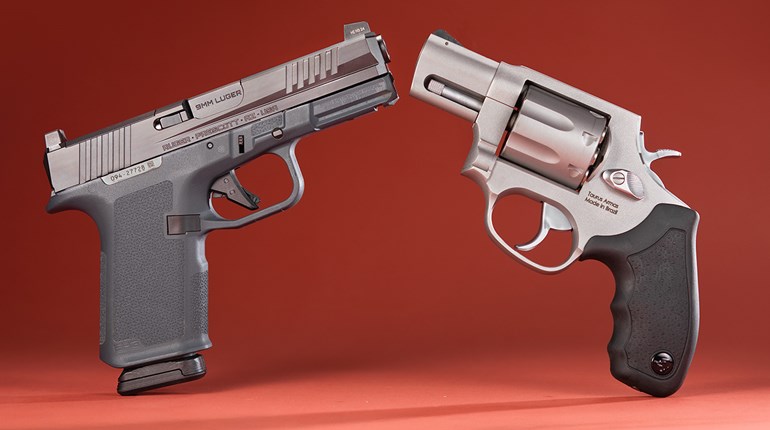
Gun control advocates often use some version of the phrase “if it saves one life” in order to justify their ineffective proposals. A few weeks ago, the anti-gun editorial page of the Chicago Sun-Times offered a different take. Fearful that the Right to Carry was getting too much good publicity in the wake of an Illinois concealed-carry permit holder’s heroic actions, the Sun-Times editorial board felt it necessary to lecture its readers, “One brave rescue of a Cicero cop doesn’t justify concealed guns.”
According to a report from the Sun-Times, on Sept. 13, Cicero Police Officer Luis Duarte and his partner were attempting to pull over a vehicle when the driver sped off. Officer Duarte and his partner gave chase and were able to immobilize the suspect’s car. Trapped, the driver retrieved a gun and fired at the officers, striking Duarte four times.
As the officers and the suspect exchanged gunfire, a nearby motorist—and Right-to-Carry permit holder—exited his vehicle and came to the aid of the officers, firing at the gunman.
After the incident, Cicero Police Superintendent Jerry Chlada praised the armed citizen, noting, “We were lucky enough to have a citizen on the street there who’s a concealed-carry holder, and he also engaged in gunfire.” Cicero Town President Larry Dominick offered similar appreciation for the carry permit holder, stating, “He got out and started helping the police, which is something I’ve got to be proud of.”
All of this commendation for the selfless act of an armed hero proved too much for the Sun-Times. Lamenting the support the incident might provide for the Right to Carry, the editors argued that “one brave deed does not justify bad public policy.”
First, the Right to Carry is not bad public policy. Right-to-Carry permit holders have proven themselves to be exceptionally law-abiding.
Second, instances of private individuals using firearms to defend themselves and others go well beyond the anecdotes that make the press. In his most recent analysis of the data on defensive gun uses, Florida State University criminologist Gary Kleck determined that Americans use firearms for self-defense about 1 million times per year.
Decades of anti-gun messaging has told the American public that if a gun control measure “saves just one life” any infringement on the rights of law-abiding gun owners is justified.
For example, Chicago-related claims occurred in the 1990s. In 1994, the Cook County Board of Commissioners passed a ban on commonly owned semi-automatic firearms. Upon passage, Commissioner John P. Daley told the Sun-Times, “If this legislation saves one life, so be it.” In 1998, Mayor Richard M. Daley touted the Windy City’s frivolous lawsuit against the gun industry and other gun control measures in an op-ed for the Sun-Times. Demanding action, the mercurial mayor wrote, “One life lost is one too many.”
Coupled with the messaging of their anti-gun allies, the Sun-Times appears intent on creating a can’t-lose scenario for gun control. This holds that if even one life may be saved by a particular gun control measure, it must be adopted. However, if a measure permitting access to firearms for self-defense might save one life, it is not adequate justification to condone such freedom. Gun rights supporters should give this latest evolution in gun control rhetoric the same consideration as its traditional iteration: none.


































